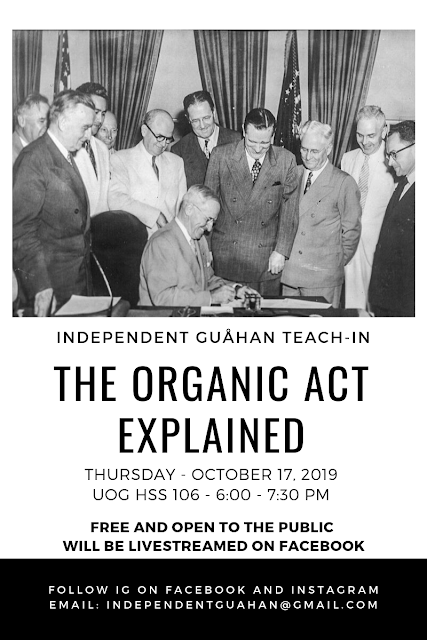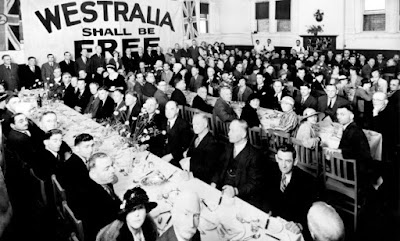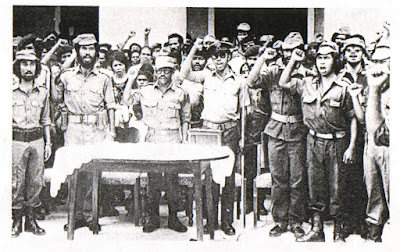The Organic Act Explained

Independent Guåhan to offer Teach-In on The Organic Act, its past, present and future For Immediate Release, October 13, 2019- Independent Guåhan (IG) invites the public to attend a Teach-In titled “The Organic Act Explained” on Thursday, October 17 th from 6 pm – 7:30 pm at University of Guam, Humanities and Social Sciences Building Room 106. This event is free and open to the public and will also be live streamed on the Independent Guåhan Facebook page ( www.facebook.com/independentgu ) Recently, Guam’s non-voting delegate to the US Congress Michael San Nicolas introduced a bill in Washington D.C. to amend the Organic Act for Guam, which would require that a public referendum be held prior to any tax increase for the island. The delegate also has plans to introduce future amendments, in order to compel prompt payment of tax refunds for local residents. Discussion on these proposed reforms has been unfortunately limited, in part by a general lack of knowledge and underst



